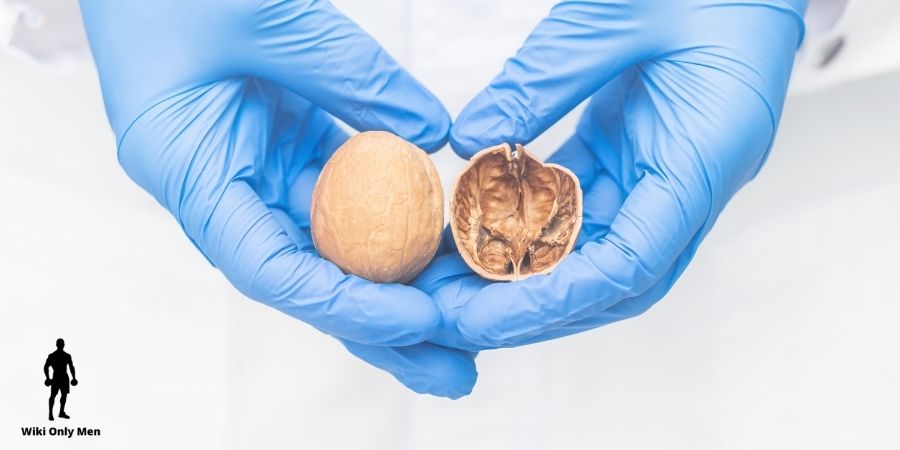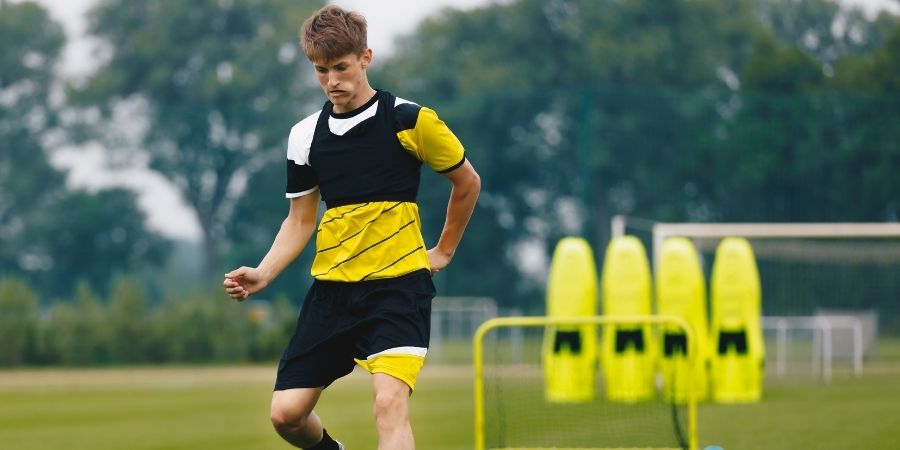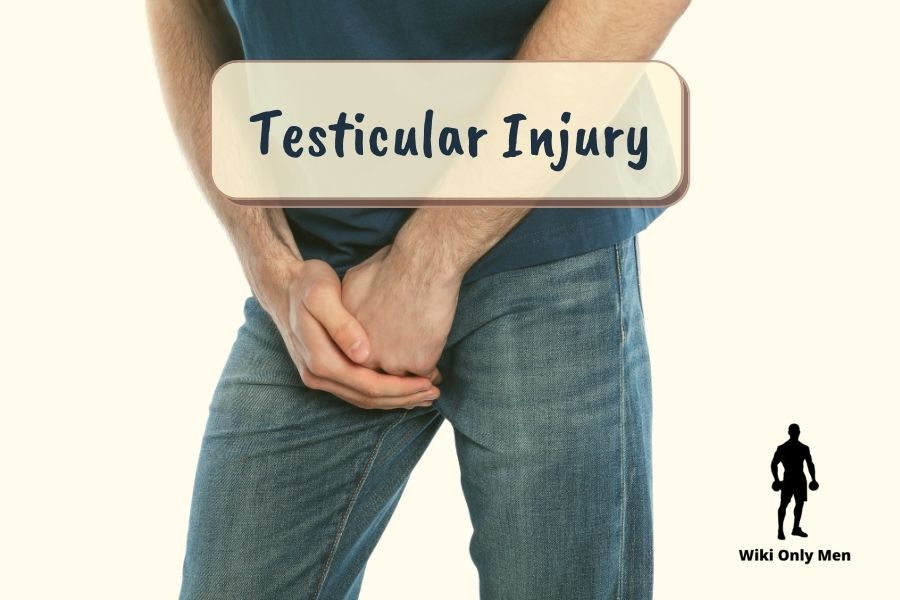The scrotum, a pouch of skin containing the testicles, is located between the thighs of men and boys. Many forms of incidents might cause testicular injury due to their vulnerable position.
Although testicular injuries are rare, men should remain alert to the possibility. As a result, it is essential to know how to avoid such incidents and what to do if one occurs.
Contents
Why Does A Testicular Injury Happen?
The testicles (we often call them balls) are externally stored in a sac (the scrotum). These sections of the reproductive system and other organs do not have bone and muscle protection.
As a physically active person, you’ve likely discovered that the testicles are fragile and susceptible to injury.
In addition, your balls are at risk of being hit by a ball or struck while participating in sports or other vigorous physical activities because of their position.
However, because the testicles are prone to damage, they have their own defenses. They are comprised of a spongy substance that is loosely linked to the body and can absorb most strikes without causing permanent injury. And the testicles are delicate; they can recover fast.
A minor testicular injury is common; it does not have long-term ramifications and will not impair a person’s ability to reproduce sexually or produce sperm.
Serious Testicular Injuries
Testicular torsion and rupture are two of the most common and devastating forms of testicular injury.

Testicular Torsion:
It’s most frequent in young men between the ages of 12 and 18, so get to the emergency room as soon as possible if you think it’s occurring to you.
The spermatic cord is a tube that contains blood vessels that run from the abdomen to the testicle. Torsion of this cord can occur as a result of a scrotum injury. However, torsion can sometimes happen without causing an injury.
When the testicle bends around and cuts off its blood supply, this is known as testicular torsion. It’s uncommon, and it’s usually for no apparent cause when it does occur. However, torsion can occur due to a significant testicular trauma or strenuous activity.
When testicular torsion is treated within 4 to 6 hours of the onset of symptoms, little or no harm is done to the testicle. But an untreated torsion can lead to the loss of a testicle or a reduction in sperm output. Doctors can occasionally correct a torsion by twisting the testicle back to its original position. Simple surgery is performed if that does not work.
Testicular Rupture:
A testicular rupture is a relatively uncommon kind of testicular injury in which the testicle can be damaged if the protective covering around the testicle is ruptured or torn.
Blood can leak into the scrotum if the testicle receives a strong direct hit or is smashed against the pubic bone. In medical terms, this is known as a testicular rupture.
The testicular rupture causes excruciating agony, scrotal enlargement, nausea, and vomiting like other major testicular injuries.
The ruptured testicle usually requires surgery to repair.
The following are examples of other potentially severe testicular injuries:
Contusion:
A testicular contusion occurs when an injury damages the blood vessels in the testicle, resulting in swelling, bleeding, and bruising.
Hematoceles:
These can happen if blood builds up behind the testicular covering or the protective barrier.
Infections:
A scrotum infection can be brought on by animal or insect bites.
Degloving:
The scrotum is pulled away like a glove from a hand in this sort of damage.
Dislocation:
The testicle can be pushed out of the scrotum by some accidents. It could end up in the belly, near the pubic bone over the penis, or in other scrotal locations.
Epididymitis:
The epididymis can be injured by testicular trauma and become inflamed or diseased. The epididymis is a coiled tube that stores sperm for a short time after sperm exit the testicle.
What Should I Do About An Injury?
If your testicles are smacked or kicked, you will almost certainly experience discomfort and, in some cases, nausea. However, in the event of a minor testicular injury, the pain and any other symptoms should subside in less than an hour.
It is possible to alleviate the pain by taking a painkiller, lying down, and supporting the testicles with supportive underwear. It’s a good idea to take it easy for a few days and avoid doing anything strenuous for a bit.
You should see a doctor right away if any of the following occurs:
- You’re in excruciating pain for more than an hour, and it doesn’t disappear.
- The scrotum is swollen or bruised, or a testicle has been punctured.
- You’re still experiencing stomach cramps and nausea.
- You begin to feel ill and start running a temperature.
You should get medical attention right away if you see any of these signs and symptoms of a more severe injury.
Symptoms Of Testicular Injury
A testicular injury often results in severe discomfort in the scrotum. There is also pain in the abdomen on occasion.
Other signs and symptoms include:
- Nausea and a feeling of unwellness (especially common with testicular torsion).
- Scrotum bruising or discoloration.
- The scrotum is swollen.
- Urine containing blood.
- Urination is proving to be a challenge and painful.
- Fever.
What Do Doctors Do?
If you need to see a doctor, they’ll want to know how long and how bad your discomfort is. Then, the doctor will perform an abdominal and groin examination to rule out a hernia or other condition.
You will also be examined for edema, color, and injury to the skin of your scrotum by a doctor. Reproductive and urinary tract infections might produce similar discomfort. And a urine test could rule out a urinary tract or reproductive organ infections.
Treating Testicular Injury
You may be able to treat testicular injuries on your own, depending on the severity of your injury. However, surgeons or other specialists are needed to treat severe testicular injuries.
To cure a torsion, a doctor rotates the testicle while holding the scrotum to return it to its proper position. Even if the testicle has been repositioned, surgery may be required.
If your testicle was dislocated in an accident, a doctor might be able to reposition it. However, surgeons may be required here also.
After your injury has healed, your doctor may recommend an ultrasound of your testicles to check for any other abnormalities.
Some minor testicular injuries can be treated with the following:
- Applying a cold pack to your genital area.
- Taking a break from intensive activities and resting.
- Painkillers and anti-inflammatory drugs.
- Preventative and therapeutic use of antibiotics.
- Your testicles are supported by a jockstrap.
Prevention Of Testicular Injury (For Teens)

Staying fit and reducing stress can be achieved by participation in sports and other forms of physical activity. Protecting your balls, on the other hand, is a must. You won’t have to worry about damaging your testicles if you wear the proper protective clothing.
Don’t put yourself at risk for testicular injury if you participate in physical activity. Your testicles are important, so take care of them.
To maintain your testicles safe and sound, here are some tips:
Use Athletic Cups:
When practicing sports or engaging in strenuous activity, always use an athletic cup or athletic supporter. Hard plastic athletic cups are typically worn over the groin area. They offer good protection and shielding for the testicles.
Cups are great for activities like football, hockey, soccer, or karate, where your testicles may be hit or kicked.
Wear Jockstraps:
A jockstrap, or sports supporter, is a textile bag that you wear to keep your testicles close to your body. Athletic supporters are great for hard lifting, cycling, and strenuous exercise.
Make Sure It Fits You:
Athletic cups and/or athletic supporters should be of the correct dimensions. Too tiny or too large a piece of protective clothing won’t provide you with the protection you need. So your penis and testicles should be entirely covered by the cup.
Keep Your Doctor Up To Date:
You presumably have regular sports physicals with a doctor if you participate in sports. Talk to your doctor if you notice any discomfort in your testicles, even if it occurs only once in a while.
Be Aware Of The Risks:
If you participate in a sport or activity that has a high risk of injury, talk to your coach or doctor about any additional protective equipment you should use.
Additional Precautions:
- If you’re in a car, always buckle up.
- When riding a motorcycle or a bicycle, always proceed with caution.
- Machinery that may catch clothing or skin should be avoided at all costs. For example, avoid wearing too baggy clothing or that has no belts. When using machinery, adhere to all safety guidelines.
Wrapping Up
A bruised testicle may be a minor injury that can heal on its own most of the time. But it’s vital to get quick medical assistance if you have more than localized pain in your scrotum.
Severe damage to the testicles might result in the testicle being lost or shrinking. They could also jeopardize your future fertility (the ability to have children). Seeing your doctor as soon as possible will help you avoid these risks.
Treatment from a doctor can help you feel better and return to your normal activities more quickly.

